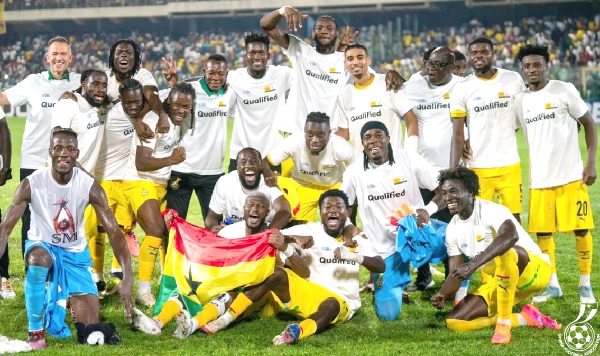Sports have always been more than just a contest of skill and stamina. They are one of the world’s most potent tools for diplomacy, image-building, and soft power.
Decades before scholars coined the term, Ghana’s first President, Dr Kwame Nkrumah, grasped this truth instinctively. He wielded sport as a vehicle for Pan-African pride and international influence — a weapon as powerful as his political philosophy.
Nkrumah’s Ghana was a rising beacon of Black excellence, with a Commissioner for Sports who reported directly to him. His vision transformed the nation into a sporting powerhouse — a “Black Star” that illuminated post-colonial Africa.
From football to boxing, Ghana’s athletes became ambassadors of a new African identity, proudly carrying the nation’s flag into the global arena.
More than half a century later, that same philosophy has found new life in East Africa — though with a distinctly modern twist. In an era when countries such as Qatar and Saudi Arabia are accused of “sportswashing” their global reputations through massive investments, Rwanda and the Democratic Republic of Congo are showing how African nations, too, can harness sport as a sophisticated diplomatic tool.
Rwanda’s masterclass in soft power
Rwanda’s transformation from the shadow of the 1994 genocide to a gleaming symbol of order and ambition has been nothing short of remarkable. At the heart of this rebranding lies a clever fusion of tourism and sport — a strategy personally championed by President Paul Kagame.
In 2018, Rwanda stunned the world by signing a multi-million-pound deal with Arsenal to feature the now-iconic Visit Rwanda logo on the team’s sleeves. The following year, French giants Paris Saint-Germain followed suit, and in 2023, Bayern Munich came on board with a five-year contract (later terminated early).
But Rwanda’s ambitions stretched beyond Europe. Through its tourism agency, the Rwanda Development Board (RDB), it pushed into the lucrative US sports market with multi-year deals involving the NFL’s Los Angeles Rams and the NBA’s LA Clippers.
The partnerships guarantee visibility across three major American sporting arenas, as Rwanda makes a bold move to attract tourists and also a recognition as a global player.
Kigali’s strategy is a masterclass in narrative control: use sport not only to attract visitors but to reshape how the world perceives Rwanda.
What was once the epicentre of a tragic genocide is now being reintroduced as a hub of innovation, cleanliness, safety, and opportunity.
Every time an Arsenal or PSG player takes to the pitch, millions of viewers encounter a small African nation daring to rewrite its story.
DR Congo strikes back
Yet, where there is success, there is imitation, and sometimes rivalry. Enter the DR Congo, Rwanda’s uneasy neighbour and two-time Africa Cup of Nations winners.
For years, Kinshasa watched as Kigali basked in glowing headlines and sponsorship deals, even as the DRC’s name became synonymous with war and instability.
This year, the tables turned. In June, the DRC announced headline-grabbing partnerships with AC Milan and AS Monaco, followed by an astonishing €40 million deal with Spanish giants FC Barcelona, beginning in the 2025–26 season.
The move was especially ironic. Only months earlier, DR Congo’s Foreign Minister, Thérèse Kayikwamba Wagner, had written to Arsenal, PSG, and Bayern Munich, urging them to cut ties with Rwanda over its alleged role in the conflict in eastern Congo.
When those pleas were ignored, Kinshasa changed tactics — if you can’t beat them, join them.
Tourism Minister, Didier M’Pambia Musanga, describes the initiatives as “rebranding a nation through the universal language of football.”
The government’s flagship campaign, Cœur de l’Afrique (“Heart of Africa”), seeks to present the DRC not as a land of conflict, but as a beating heart of culture, resilience, and opportunity.
Permanent mark on world football
The most audacious part of Congo’s playbook lies in its partnership with Barcelona. Beyond the sponsorship fee, the deal includes the creation of a permanent “House of the DRC” inside the new Camp Nou stadium, one of Europe’s most visited tourist attractions.
This cultural space, envisioned as a miniature Congolese embassy within the stadium, will host exhibitions, tourism showcases, and interactive experiences.
Millions of fans visiting Camp Nou each year will not only watch football but also “experience” Congo — its music, art, and natural wonders.
Africa’s new image war
The battle between Kigali and Kinshasa is not just about tourism. It is also about who controls Africa’s narrative on the world stage.
Rwanda’s early-mover advantage has turned the country into a darling of global branding — sleek, organised, and progressive.
Now their regional rival wants to challenge that dominance by reframing itself as the authentic heart of Africa, not its wounded limb.
This shift marks a new era where African nations are learning to speak the language of global marketing through sport, turning football fields into diplomatic frontlines and jerseys into billboards of national ambition.
Lessons for Ghana
Ghana’s qualification for the 2026 FIFA World Cup presents a golden opportunity to emulate and refine the soft power strategies of Rwanda and DR Congo — turning football into a driver of tourism, investment, and national rebranding.
Like Rwanda’s Visit Rwanda partnership with Arsenal and PSG, Ghana can align the Black Stars’ World Cup campaign with a global “Visit Ghana” brand activation that runs through the tournament period and beyond.
This means integrating the national team’s success into a larger narrative of Ghana as a stable, creative, and business-friendly destination — one that celebrates its cultural vibrancy, hospitality, and heritage.
Strategic collaborations with international clubs, airlines, hotels, and global media houses could create a multi-layered marketing push that sells not only the Black Stars but the Ghanaian experience.
Just as Rwanda used sport to shift global perceptions, Ghana can harness the World Cup spotlight to tell a fresh story of innovation, resilience, and opportunity — positioning Accra as the gateway to Africa’s creative and investment economy.
